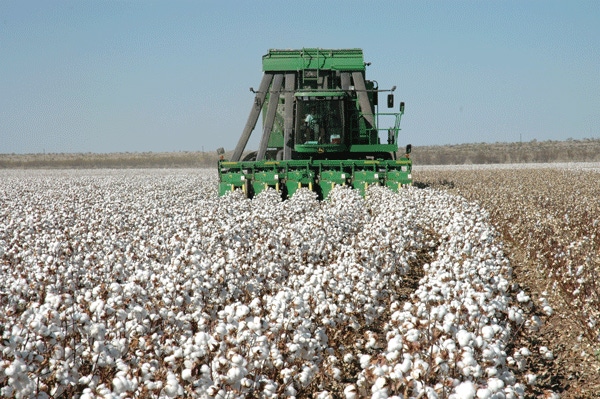May 9, 2011

Funded in part by Cotton Incorporated, Texas A & M University’s Agricultural Food Policy Center (AFPC) has developed a decision aid for producers considering ACRE.
The 2008 farm bill provided producers the opportunity to choose to replace counter-cyclical payments (CCPs) that are triggered only by low prices with a revenue based payment, referred to as the Average Crop Revenue Election (ACRE) payment that is triggered by low prices, low yields or both.
Producers choosing to continue receiving CCP payments would continue to receive direct payments and be eligible for loan deficiency payments and/or marketing loan gains. This choice is referred to in this Decision Aid as selecting the DCP program.
However, producers who select the ACRE payment option accept a 20 percent reduction in direct payments and a 30 percent reduction in loan rates. A further complicating factor is that ACRE payments are only made if both the state revenue in a given year falls below the state benchmark revenue for that year and the farm revenue in that year also falls below the farm benchmark revenue for that year.
The ACRE program provides eligible producers a state-level revenue guarantee, based on the 5-year state Olympic average yield and the 2-year national average price. ACRE payments are made when both state and farm-level triggers are met.
The decision to elect ACRE binds the farm to the program through the 2012 crop year — the last crop year covered by the 2008 Act.
“In years past, ACRE has not been a good alternative for cotton producers. But this year, cotton producers should use this decision aid to see if they would be better off with ACRE. The recent high prices for cotton may turn the tide and provide producers a higher payment than they would possibly get by staying with the direct payment. This is particularly true if they grow sorghum or corn,” says James Richardson, Co-Director, Ag Food Policy Network.
The ACRE Decision Aid, developed by Agricultural and Food Policy Center faculty and staff, attempts to take into consideration all of these factors including price and yield risk and the corresponding state and farm yield correlations. A copy of the decision aid is available at http://www.afpc.tamu.edu.
The deadline to sign up for ACRE or DCP is June 1, 2011.
For previous reservations about the ACRE program, visit http://southeastfarmpress.com/acre-program-reviews-less-positive.
You May Also Like




